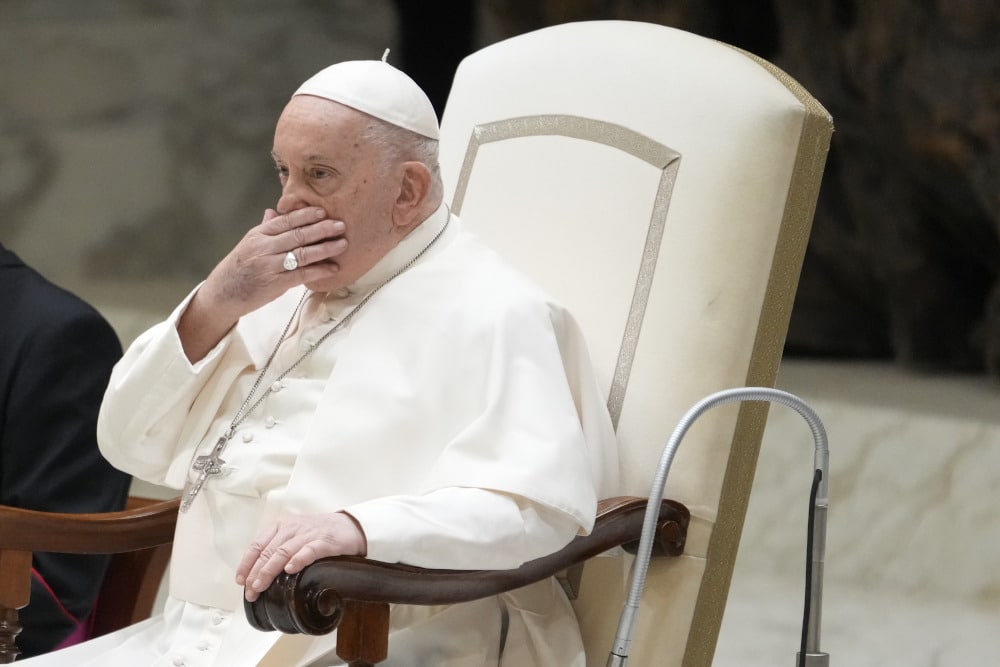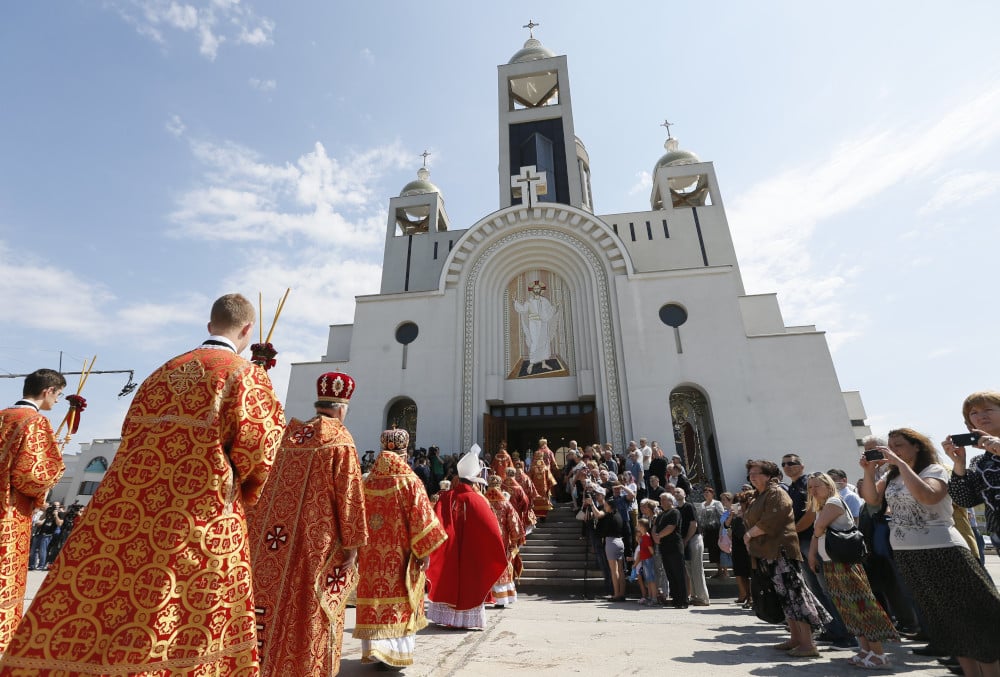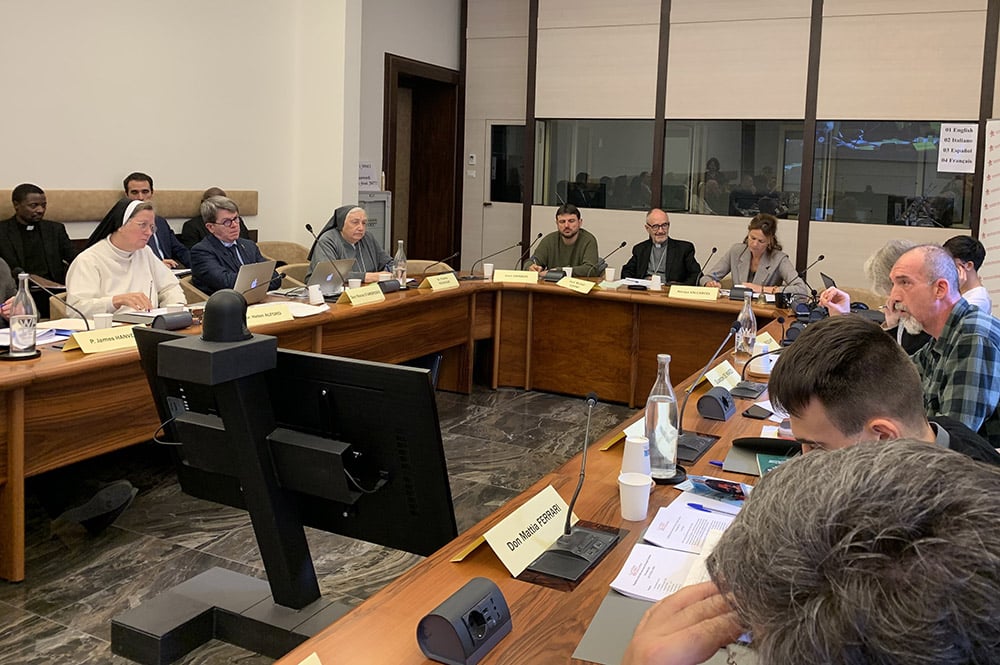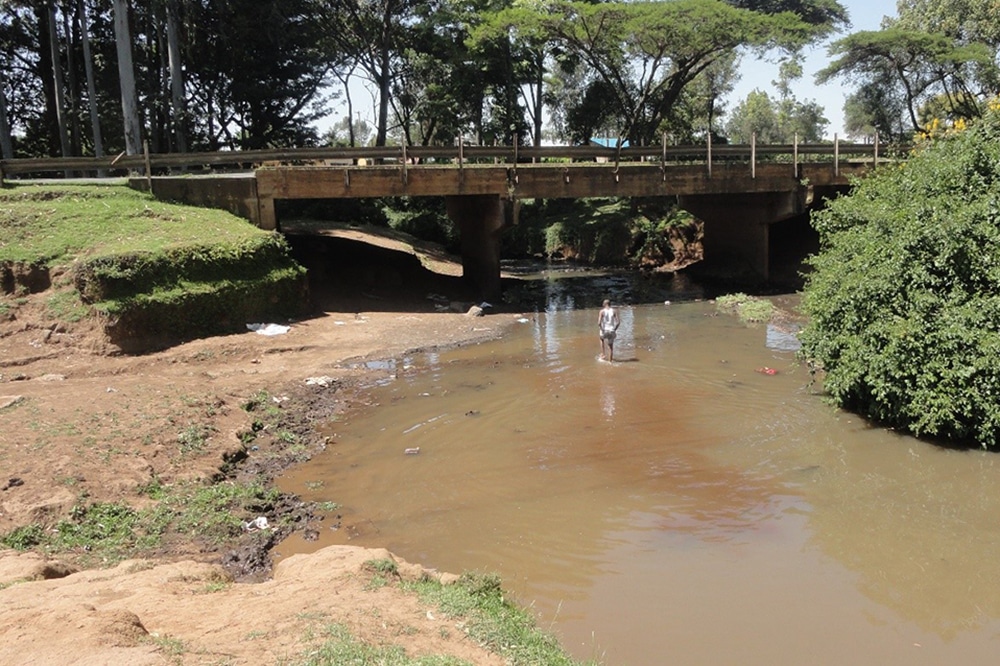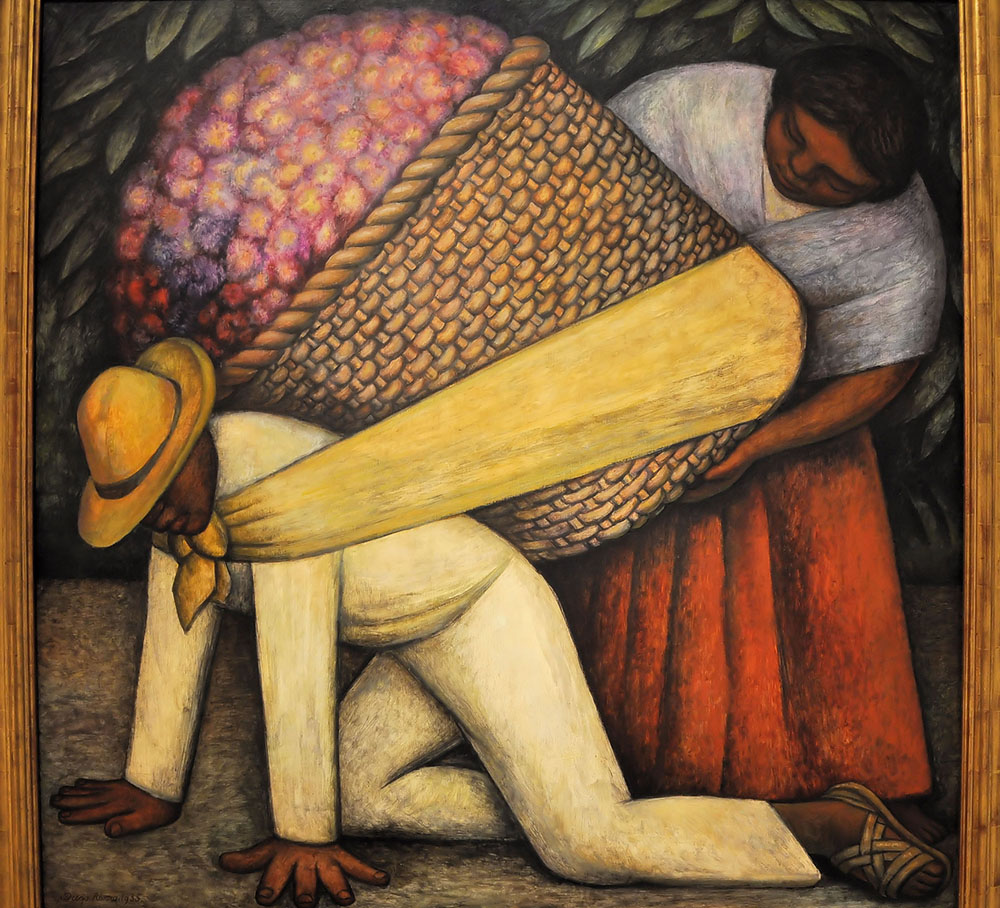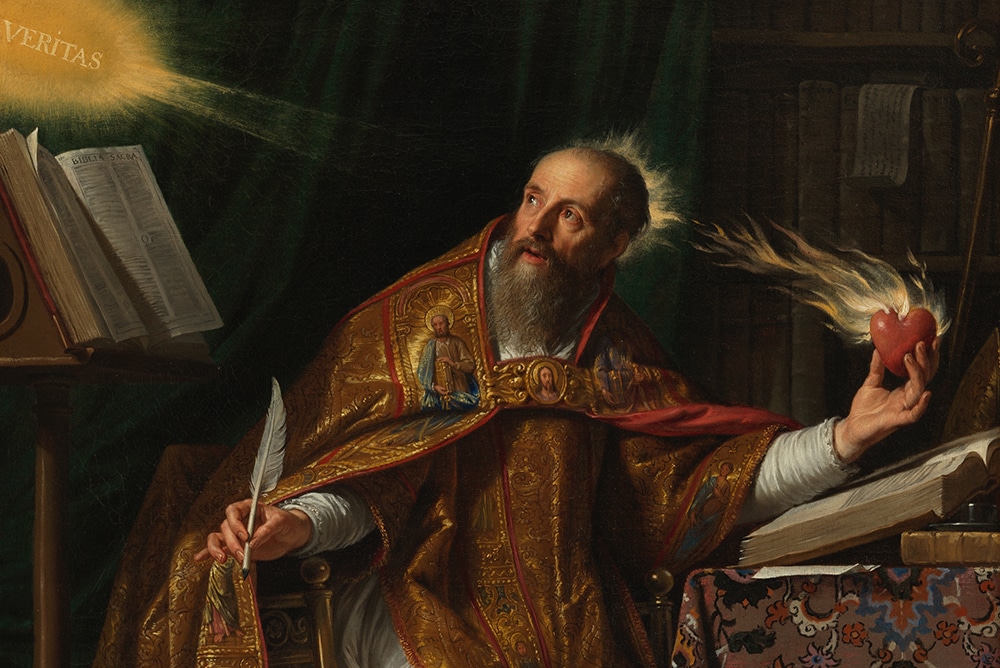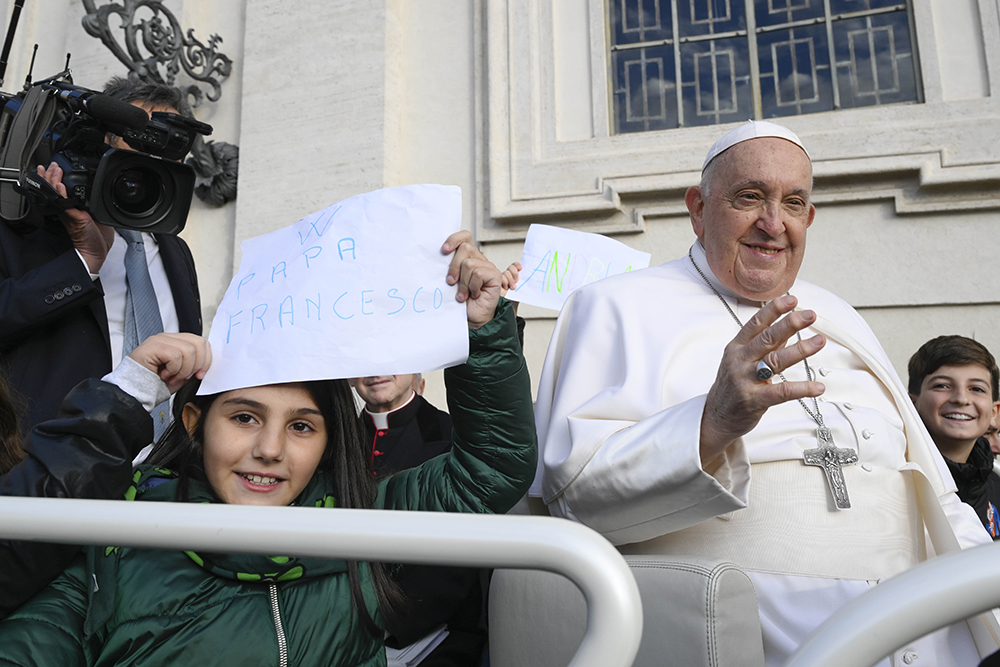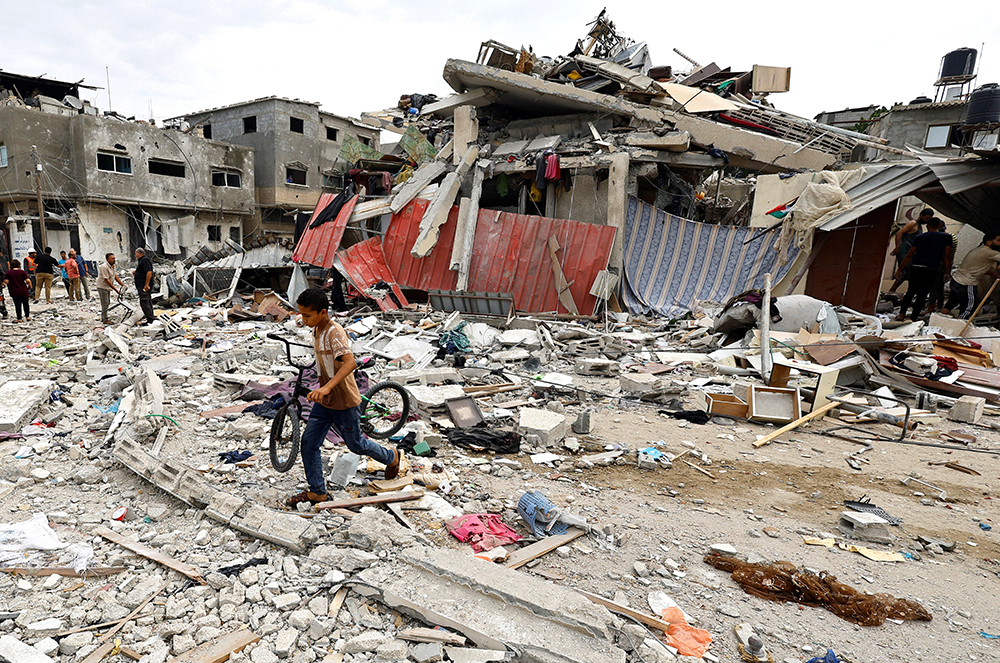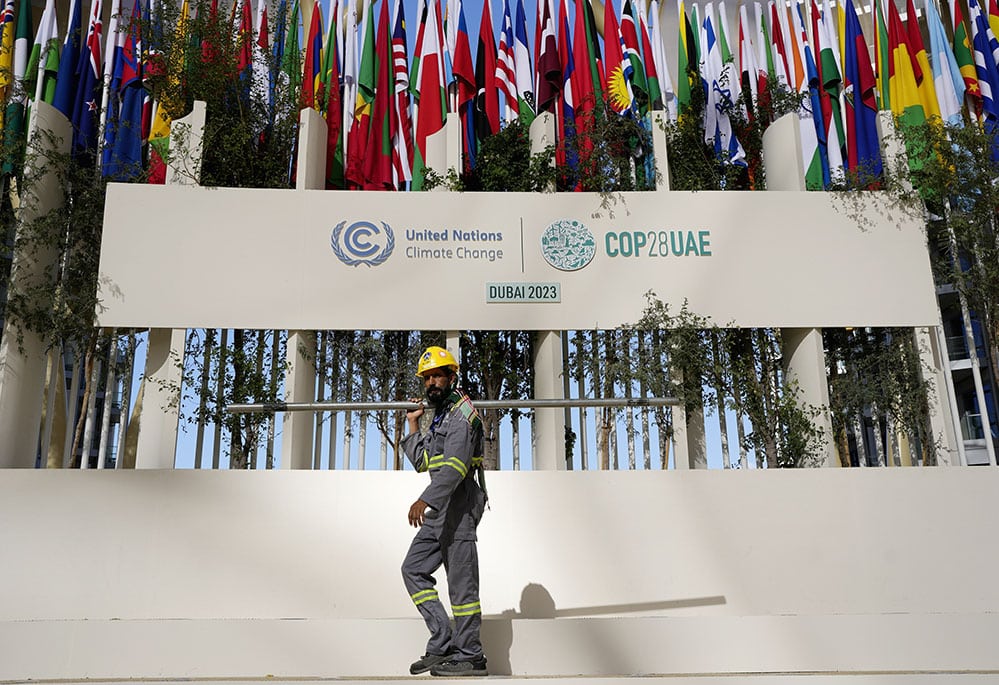
The U.S. bishops added their voice to calls for the United Nations climate summit to usher in a decisive and accelerated transition away from fossil fuels toward clean energy, describing decarbonization of global economies as « the preeminent environmental challenge faced by all nations. »
The Nov. 29 statement from the U.S. Conference of Catholic Bishops offered prayers for the leaders and participants, upward of 70,000, gathering in Dubai, United Arab Emirates, for COP28. The latest session of the annual U.N. climate change conference opened Thursday in Dubai.
The statement was issued by Archbishop Borys Gudziak of the Ukrainian Catholic Archeparchy of Philadelphia and Bishop A. Elias Zaidan of the Maronite Eparchy of Our Lady of Lebanon, chairs of the U.S. bishops’ committees on domestic justice and human development and on international justice and peace, respectively.
Gudziak and Zaidan referenced Pope Francis’ recent apostolic exhortation, Laudate Deum, which the pope focused on climate change. « The climate crisis is an opportunity to reconfigure international relations toward the common good » where countries and communities can work together to « achieve ‘a decisive acceleration of energy transition,’ » they wrote, quoting Laudate Deum.
« Despite the tremendous growth of renewable energy worldwide, the global economic system remains largely powered by fossil fuels. Decarbonization of the economy — through the replacement of fossil fuels with secure, reliable, affordable, and clean energy — is the preeminent environmental challenge faced by all nations, » the two bishops wrote.
The 13-day climate summit, hosted by the oil-rich UAE, is expected to see intense debates about the future of fossil fuels, while a « global stocktake » process will show nations well off track from meeting the Paris Agreement goal of limiting global temperature rise to 1.5 degrees Celsius.
Developing countries, alongside many faith-based organizations, civil society groups and climate activists, have called for nations in Dubai to commit to a full phaseout of coal, oil and gas. Burning these fuel sources releases heat-trapping greenhouse gas emissions that are the primary driver of climate change.
But fossil-fuel-producing countries have instead proposed a « phasedown » or phaseout of « unabated fossil fuels. » Such terminology would allow continued use and production of the carbon-emitting fuel sources alongside the development of carbon-capture-and-sequestration technologies to pull emissions from the atmosphere. So far, the technology remains expensive and hasn’t been deployed at large scale.
In their statement, Gudziak and Zaidan said they were encouraged by recent decarbonization efforts in the U.S., including those initiated through the Inflation Reduction Act, the largest-ever climate legislation. The bishops supported the legislation, which is investing upward of $300 billion to transition the nation to clean energy.
Under the Paris Agreement, the U.S., the largest historical emitter of greenhouse gases, has pledged to reduce carbon emissions by 50% to 52% below 2005 levels by 2030.
Still, the bishops said that any efforts to decarbonize and shift to renewable sources won’t be successful if they significantly increase energy costs for middle- and low-income citizens.
« In other words, climate goals must represent both the ‘cry of the earth’ and the ‘cry of the poor,’ and include the financial support by developed nations for adaptation, resilience, and recovery of the most vulnerable, » they wrote.
In his own statement, Cardinal Robert McElroy of San Diego urged COP28 to eliminate subsidies for fossil fuels — estimated at $7 trillion globally — and for debt relief to be offered to economically poor nations in exchange for funding climate adaptation and resilience measures. Catholic Climate Covenant has advocated such debt-for-climate swaps with the Biden administration.
McElroy added that while the pope will no longer attend the summit due to illness, his leadership on environmental justice and in calling all nations to a stronger response on climate change « will be front and center. »
McElroy said that Francis, in Laudate Deum, « makes clear his thesis: ‘This is a global social issue and one intimately related to the dignity of human life … The whole of the created order, which is the gift of God to all of humanity, is at risk.’ «
Catholic Relief Services, the international humanitarian and development organization of the U.S. bishops, will have a delegation in Dubai at the climate conference. The CRS delegation will include staff from some of the countries most vulnerable to the impacts of climate change.
In a statement, CRS said its team will seek to advocate for progress on climate finance — including fulfillment of long-promised $100 billion annually for developing countries’ mitigation and adaptation efforts — and for the loss and damage fund established last year at COP27 to be operationalized. Other priorities include a comprehensive framework and doubling of financing for climate adaptation and inclusion of sustainable agricultural practices.
« The climate crisis requires a global response with the United States taking a lead role in that response, » Gina Castillo, CRS policy adviser on climate change, said in a statement. « At COP28, we will be pushing United States negotiators to advance policies that address immediate needs and pave the way for a sustainable and equitable future for all. »
